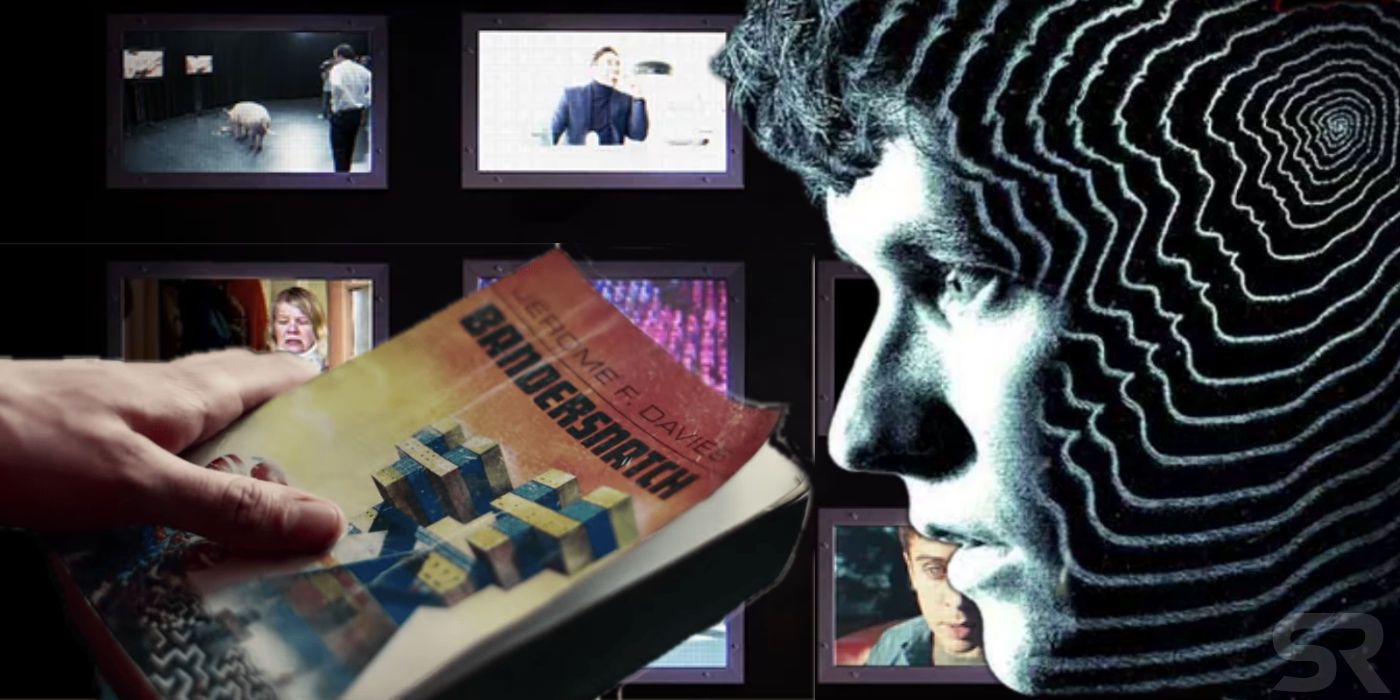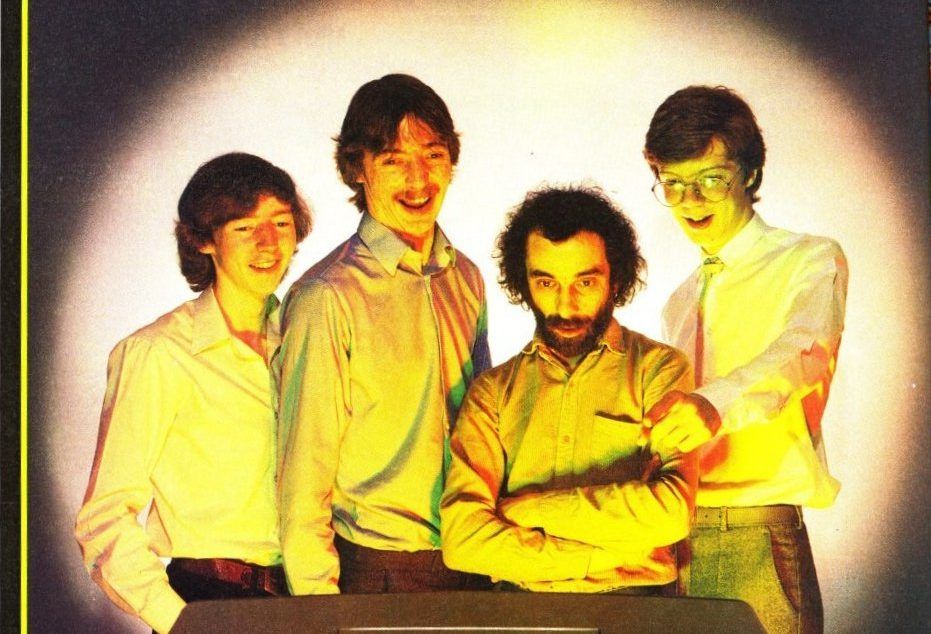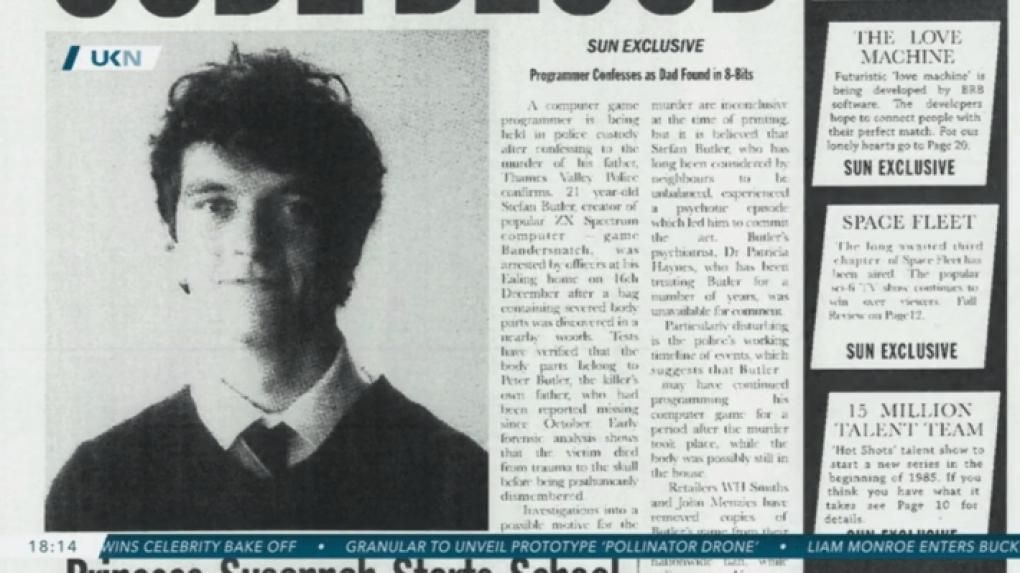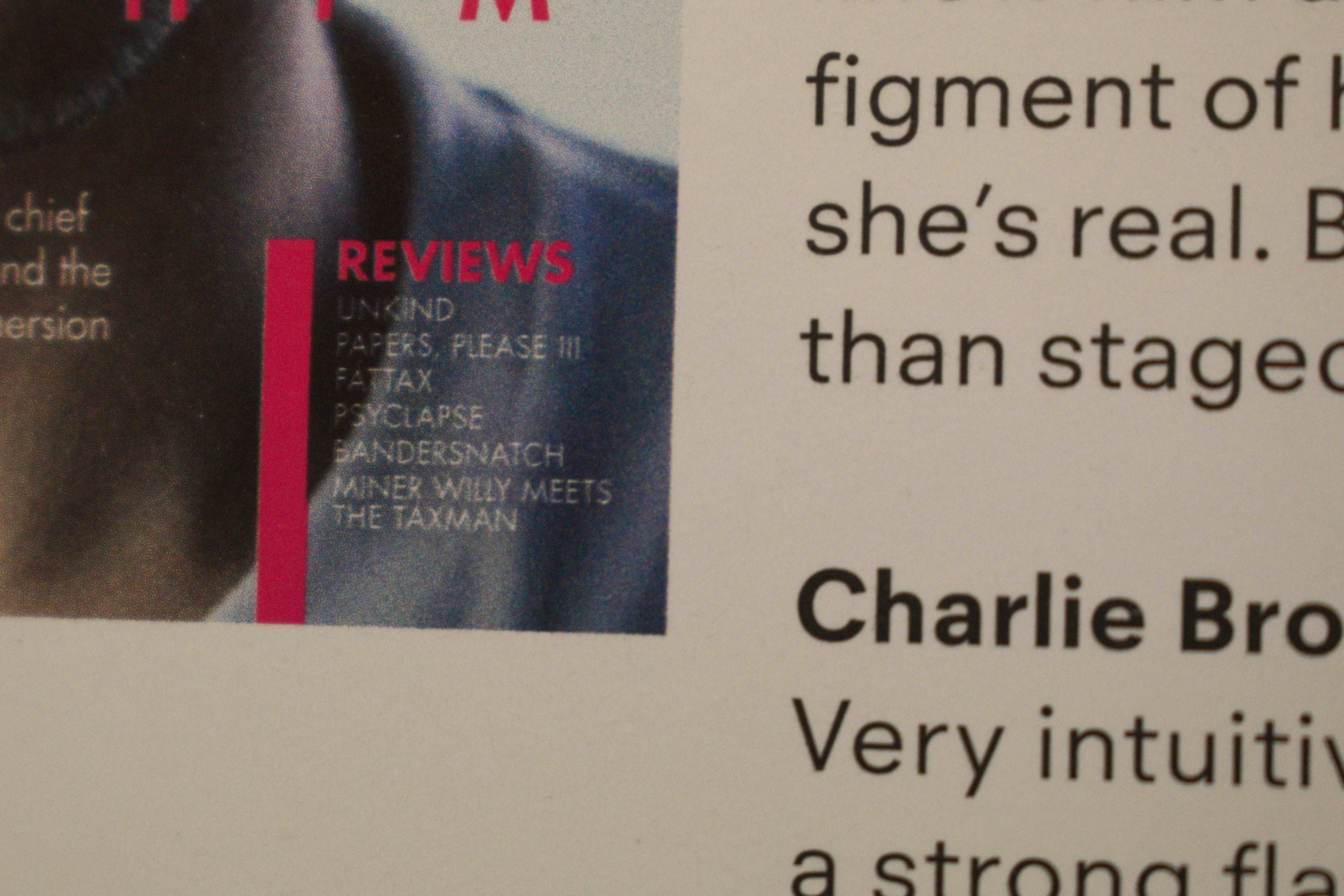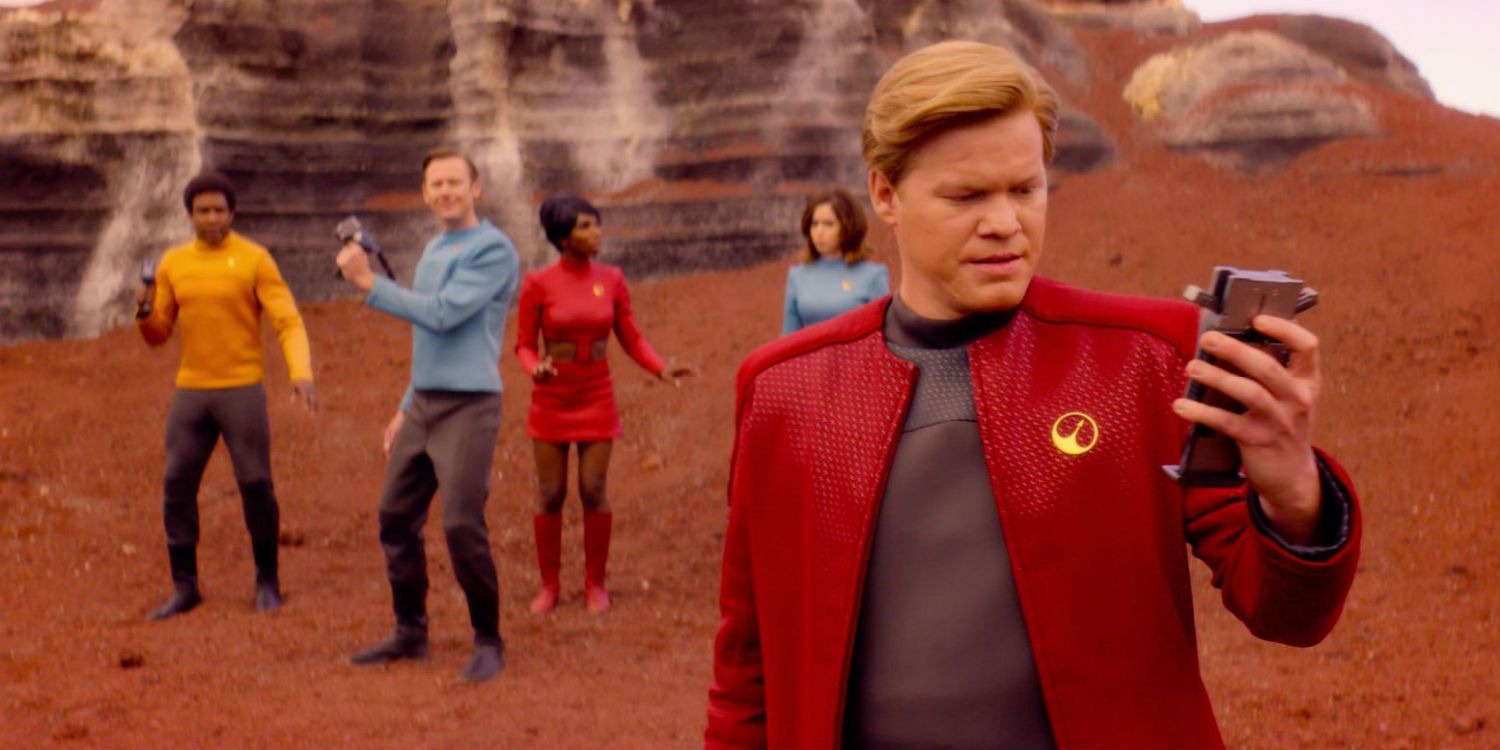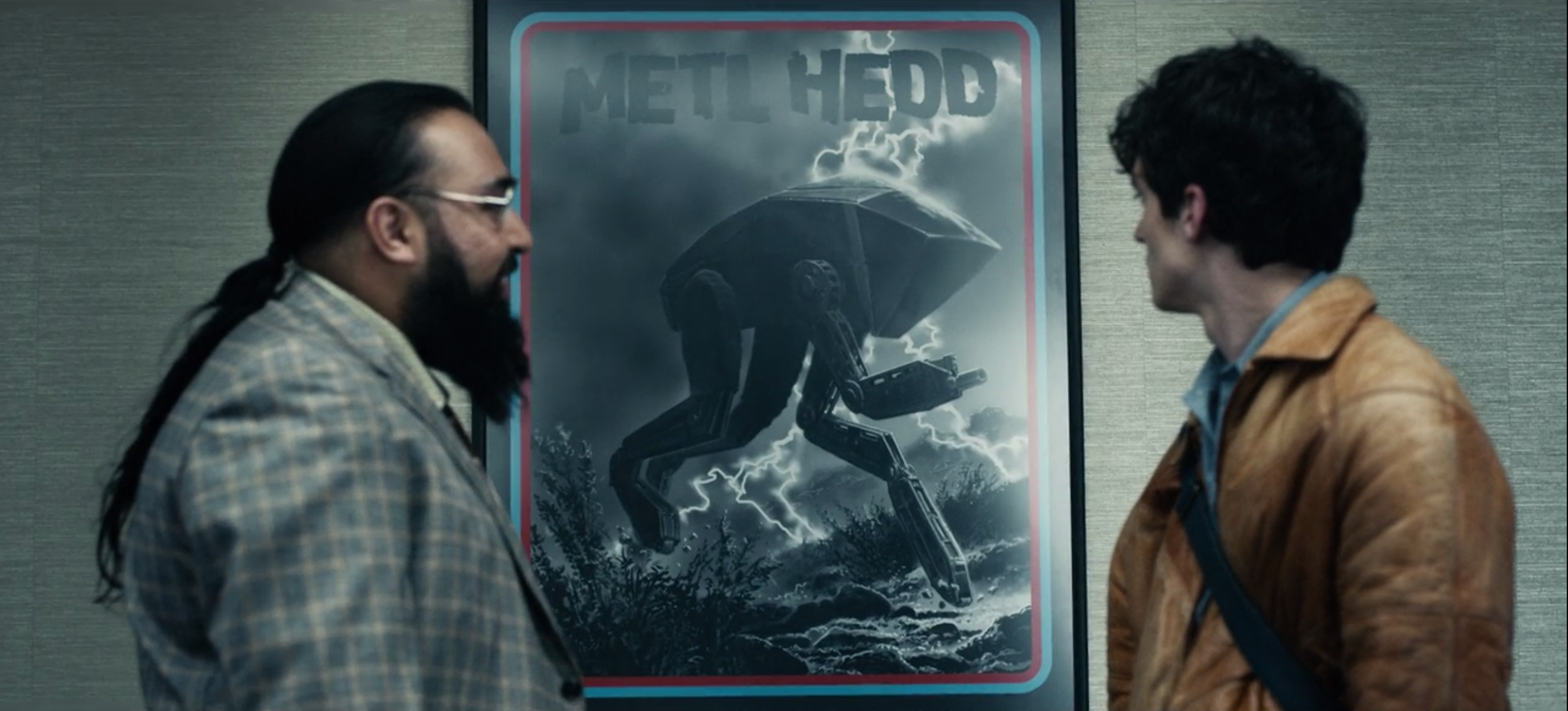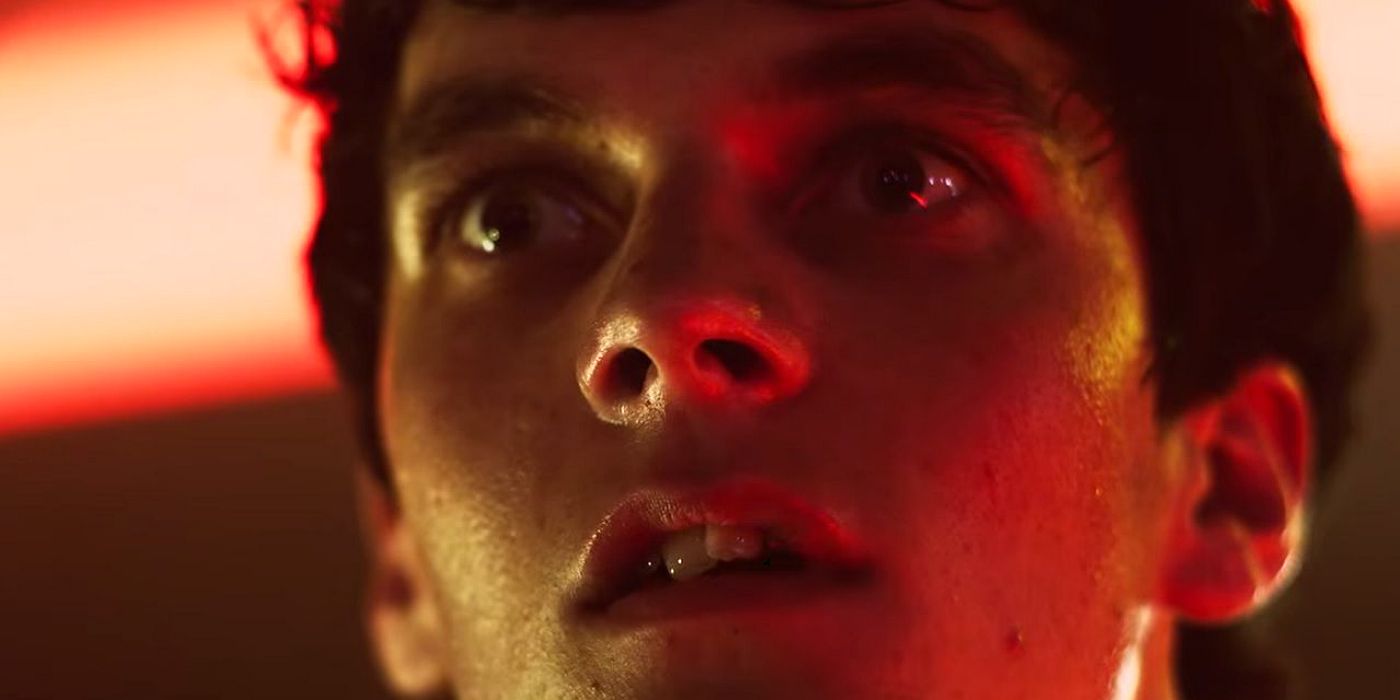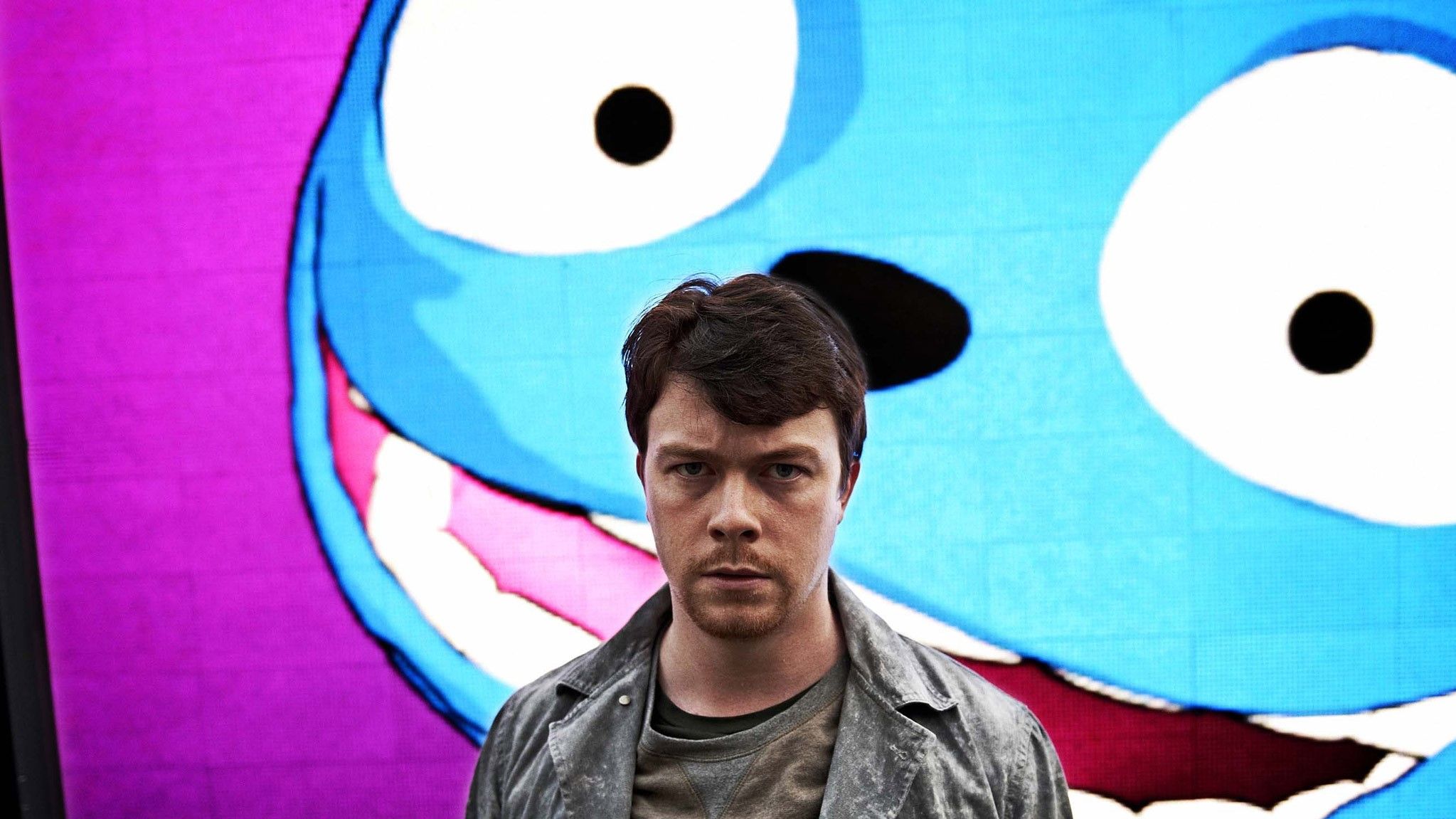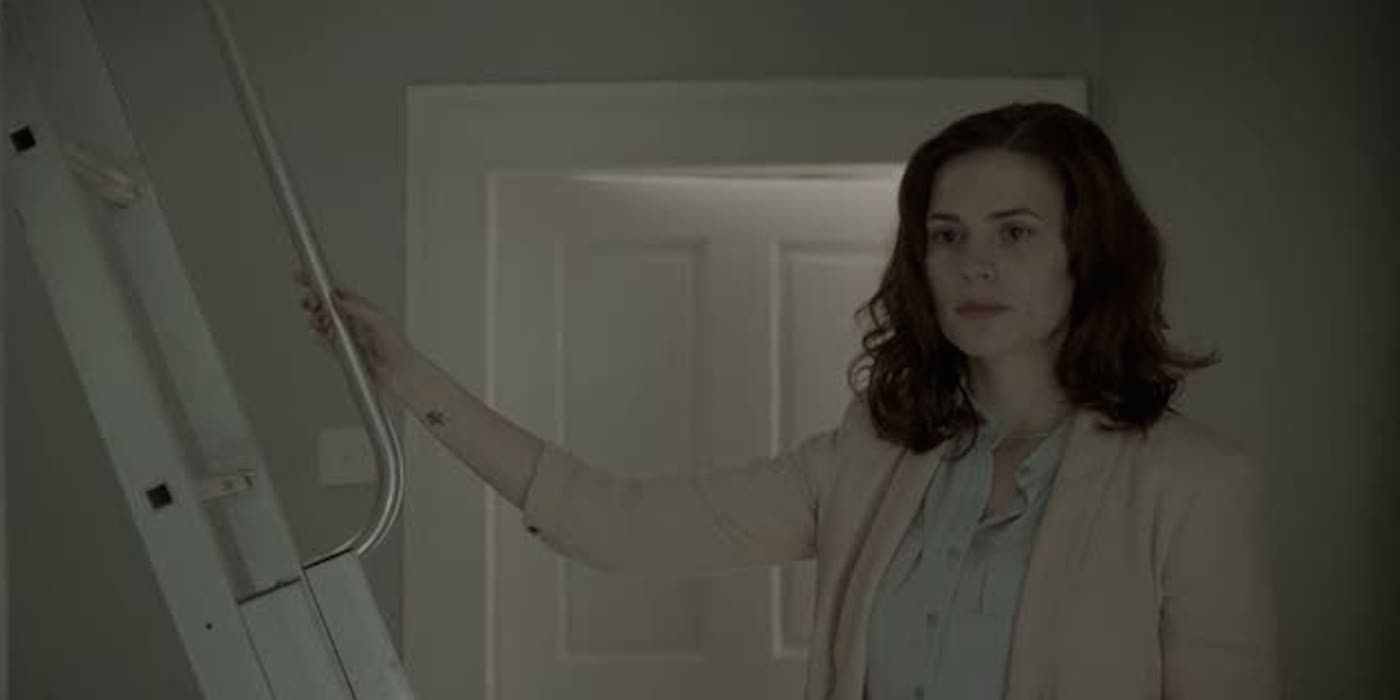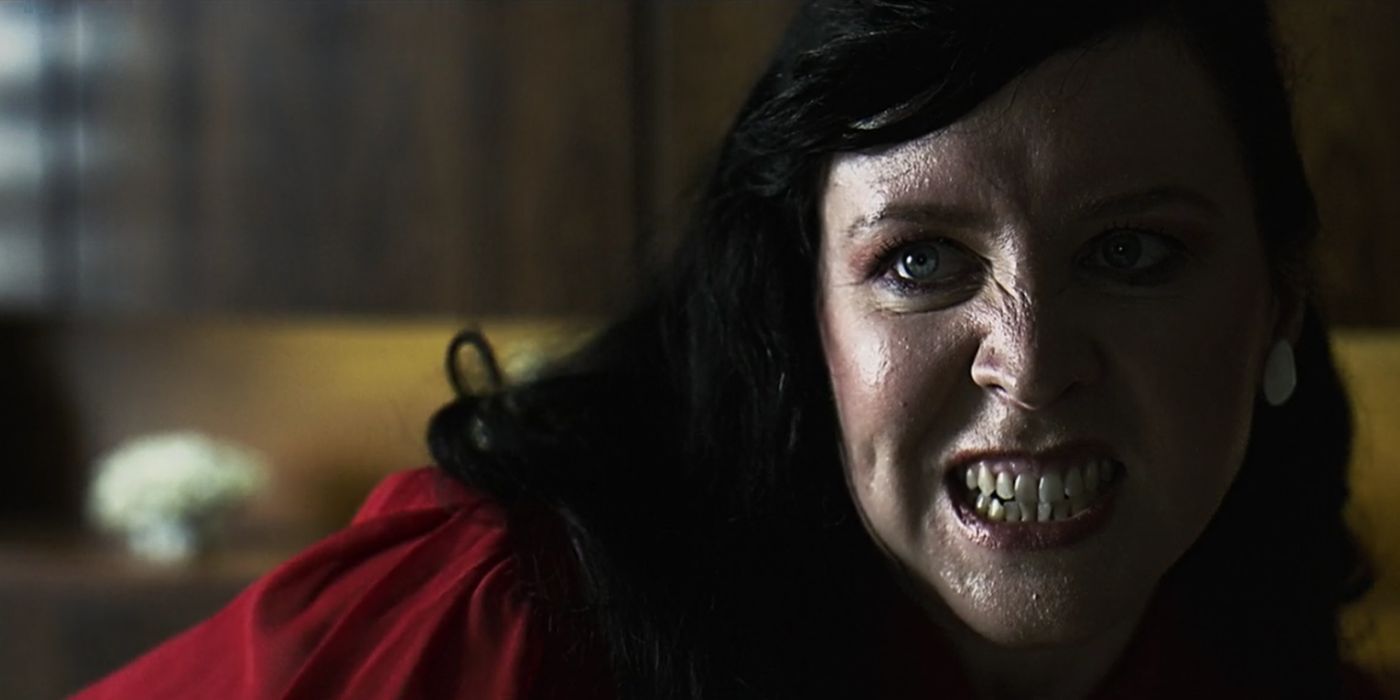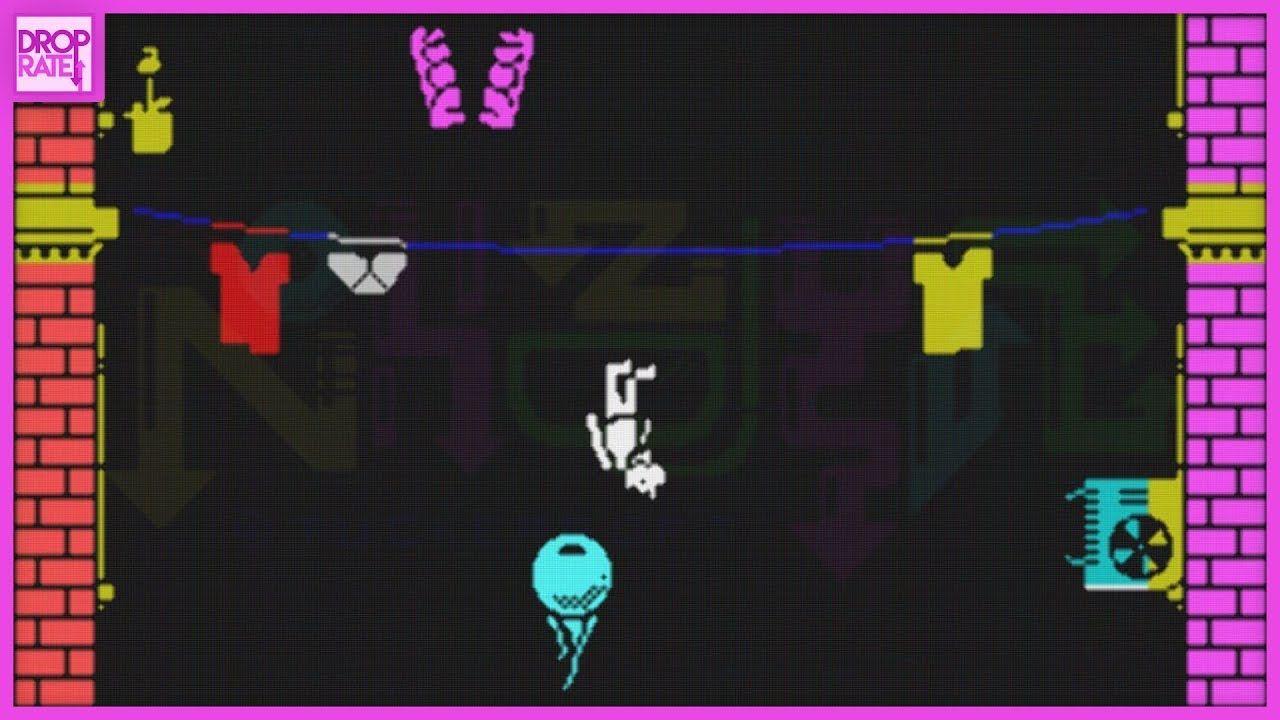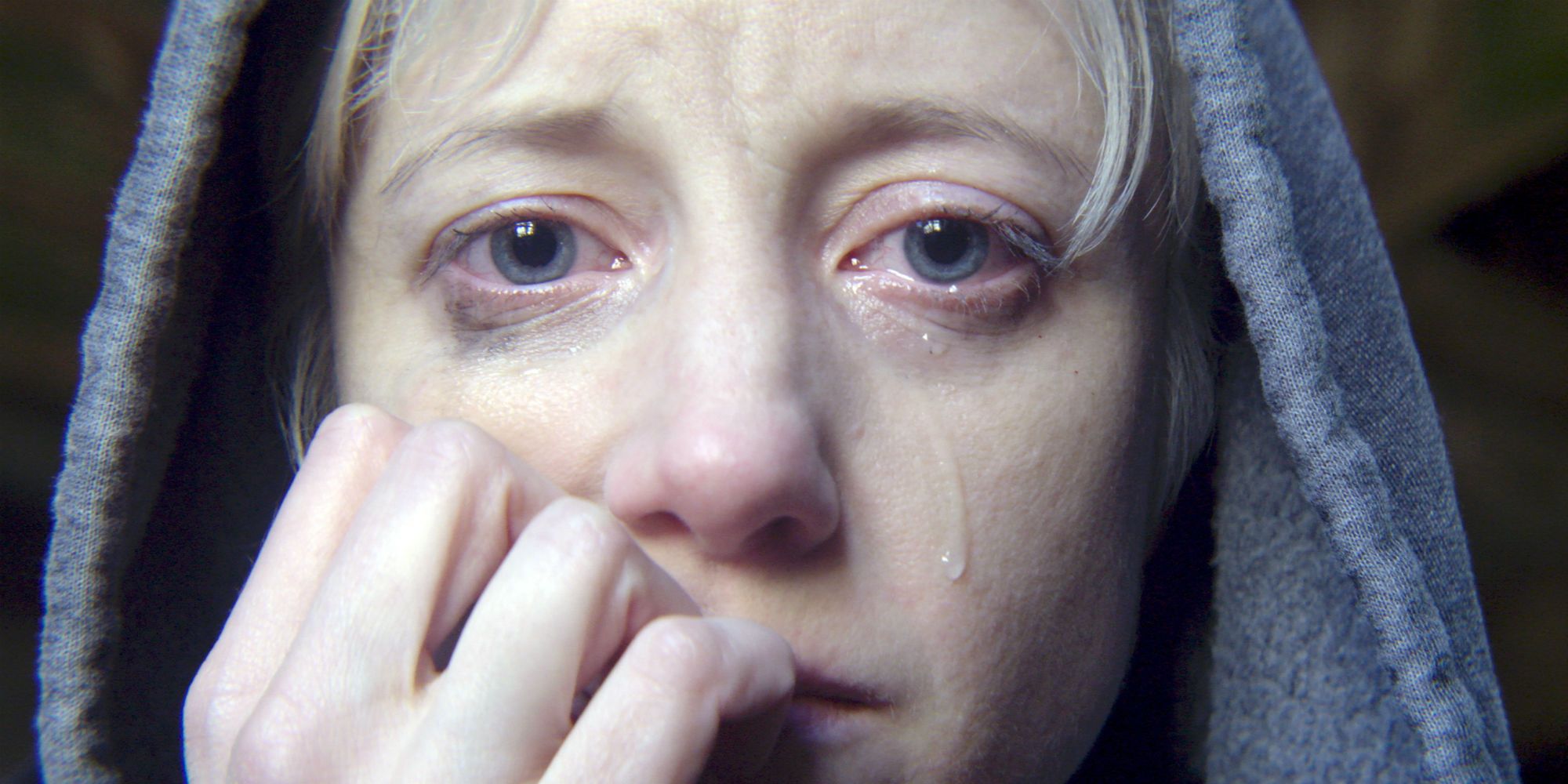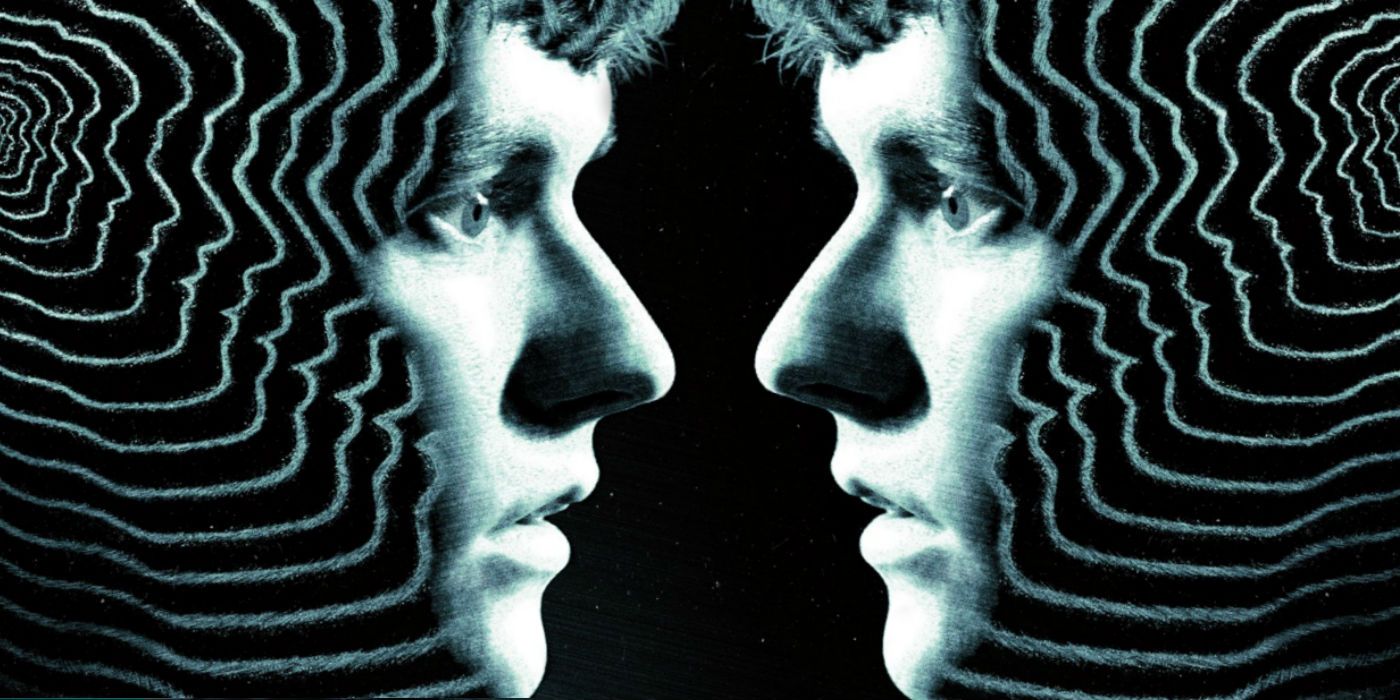When it comes to the dark world of Netflix’s anthology suspense series Black Mirror, nothing is what it really seems to be. This brilliant successor to The Twilight Zone brings that series’ arcane odysseys and neck-snapping twist endings into the digital device era in a way that’s a little too familiar. For those of us staring hours a day into the flat glass screens of our phones, tablets, and computer monitors, Black Mirror’s tormented reality always seems to be just one or two steps ahead of the technology we increasingly depend upon.
Now, the show has leveled up with its "Bandersnatch" episode, inspired in more ways than one by Lewis Carroll's Alice in Wonderland mythology. This interactive “choose your own adventure” experience literally places the power in the palm of the audience’s hands, with a number of different story paths and alternate endings possible based on those choices. Horror survival video games like Until Dawn have been doing this for years, but it’s relatively new for TV.
"Bandersnatch" has been a confounding undertaking for viewers. The genius of the storytelling is undeniable, but the possibilities are so varied that you can get lost for hours chasing them all. Add to that the fact that the filmmakers loaded the episode up with Easter eggs, and you’ve got a journey so full of distraction and misdirection, even committed Black Mirror freaks are bound to have failed to noticed a lot of what the show was hiding in plain sight. Ready to go down the rabbit hole?
Here are 20 Wild Things Fans Completely Missed In Black Mirror: Bandersnatch.
There Really Was a Bandersnatch Game in 1984
Anybody who has already seen "Bandersnatch" knows the episode is so totally meta. It’s not only self-referential to the series, but turns the audience into a central character, and even drags in real-life events into the storyline in cryptic ways. In 1984, a video game company called Imagine Software was working on a game that was supposed to be so amazing, consumers would need extra hardware just to run it. And yes - it was called Bandersnatch.
Ultimately, the company folded before the game could be released. The date of their demise? July 9th, 1984, the same day we meet protagonist Stefan Butler in the "Bandersnatch" episode. In all likelihood, series creator Charlie Booker knew about all this, so it’s no coincidence.
White Bear's glyph
"Bandersnatch" deeply involves hardcore Black Mirror fans in a myriad of ways. The Easter eggs planted throughout the episode likely has one of the more powerful subliminal effects. One of the more obvious series stamps in "Bandersnatch" is the familiar glyph which both possibly symbolizes the games “thief-of-destiny” demon Pax, and perhaps a secret conspiracy playing mind control games with Stefan.
If this symbol seems familiar, that’s because this very same glyph was all over the gripping “White Bear” episode, where a mind-control reality show was used as an extremely cruel punishment. Is there a meaningful connection? There’s no way to know yet, but it’s arguable that in both cases, for different reasons, the protagonist is having their “destiny” stolen.
“Fifteen Million Merits” debut
Some of the "Bandersnatch" Easter eggs are tougher to find than others. While some are pretty much thrown in our faces, others are literally hidden in the fine print. Black Mirror aficionados will have to take their memories all the way back to the season one episode, “Fifteen Million Merits”. In this story, people living in a dystopian future are basically life-long slaves forced to generate power for the elite by riding stationary bikes. For this, they collect “merits,” which is a type of currency. For 15 million merits, these slaves can buy a ticket to a talent show as a contestant, which if they win, will award them freedom and luxury.
In one of the "Bandersnatch" endings, a newspaper story about Stefan’s crimes can be seen – and next to it, an ad for the "Fifteen Million Merits" show.
One Ending Makes the Audience the Victim
There are quite a few different endings available for the interactive experience of "Bandersnatch". Audiences spend hours seeking out different pathways to different outcomes. The whole thing can be extremely disorienting. It can make the viewer feel as insane as Stefan Butler feels.
One ending in particular accentuates this point. If you get to the balcony scene, where you get to choose whether either Stefan or Colin will jump off the balcony – and you choose Stefan – you watch him fall to his final fate with a point-of-view camera movement. This subjective lens angle transforms the viewer into the subject. That’s right! If you come to this ending, which is also the end of Stefan’s life, the episode ends with you falling to your demise. Congratulations – the show just took you out permanently!
National Anthem's Callow gets his happy ending
For viewers who go all the way back to the very first episode of Black Mirror, this one will bring back some pretty gross memories. In “National Anthem,” PM Michael Callow of England is blackmailed into performing a truly gross act with a barnyard animal – namely, a pig-- and he has to do it on national television.
It was a funny concept until the moment of truth arrived, with riveted viewers drunkenly watching the whole thing as if it were an exciting soccer match. In one of the flash-forward endings in "Bandersnatch", the daughter of slain developer Colin Ritman is being interviewed for her remake of the lost adventure game. If you look at the crawl on the bottom of the screen, it says “Former PM Michael Callow Wins Celebrity Bake Off.” So there is life after pigs after all!
Saint Juniper's
Easily one of the most beloved episodes of Black Mirror is the lovely “San Junipero”. While most entries in the anthology’s universe ends up in tragedy, madness or absolute despair, this romantic tale actually ended with an unforgettable storybook moment. It was quite the thing to pull off with the show’s cynical fan base, but it worked: true, eternal love was indeed alive in the digital realm.
How does this sweet corner of this dark series end up in "Bandersnatch?" The name of the medical building Stefan reports to for therapy sessions is “Saint Juniper’s," which is the English translation of “San Junipero.” Is there a message here? Perhaps not, but if anybody can be healed on this crazy series, it would be in a place with that name!
“Playtest”
This is a strange entry, for which fans will need to flash back to an older episode of Black Mirror. “Playtest” stars Wyatt Russell (of Overlord fame) as a video game tester who is taken into a virtual reality of his own private hell. Viewers looking closely will notice that Russell’s character peruses a copy of the British video game periodical Edge Magazine. The cover promises a review of a hot new game called – wait for it – Bandersnatch!
Was this foreshadowing the new episode? Are there other pre-loaded Easter eggs floating around the Black Mirror universe? The mind reels at the possibilities!
Space fleet
Once again, we look to the possible ending where Stefan has been caught or a crime, and the story of his evil deeds appears in a newspaper. There, next to his picture, is a blurb for a television show called Space Fleet. If that feels like more than just a cosmic coincidence, it’s because that’s the name of the outer-space TV series in the “USS Callister” episode.
As a reminder, that’s the one where a virtual shared universe based on a close facsimile of Star Trek is run by a maniacal tech nerd. By “cloning the souls” of his coworkers, he traps these digital consciousnesses as subject to his every whim.
Metlhedd
One of the most viscerally thrilling episodes of Black Mirror is “Metalhead”, helmed by "Bandersnatch" director David Slade. The premise of this black and white tale could not be simpler: in a dystopian future, a woman is on the run from a relentless mechanical hunter. Think of it like The Terminator, only instead of an android, it’s a dog-sized robot. Make no mistake, though, it’s just as dangerous and unstoppable as the Cyberdyne Systems Model 101!
This "Bandersnatch" Easter egg is probably the easiest to spot. A huge poster of a video game hangs prominently on the walls of Tuckersoft – called “Metl Hedd” – and features the metallic pooch. We even get a glimpse of the game in action and it looks like a perfect 8-bit rendition of the episode’s protagonist and enemy.
Granular drones
Imagine that a swarm of bees is coming at you, massing to attack and do great harm upon your person. Now imagine those tiny flying creatures aren’t bees at all, but little drones with AI programmed to eliminate you. That’s pretty much the premise of Black Mirror’s “Hated in the Nation” episode. It’s a scary bit of business as the artificial insects can get to you even in a sealed house by seeking out cracks to get through.
In "Bandersnatch," we get to see the company name – Granular – scrawl by beneath that same news report that has Colin’s daughter featured developing the new Bandersnatch game. So next time you hear buzzing coming from a flower patch, be careful! The future is coming!
The Episode Turns the Audience into God
"Bandersnatch" is made up of meta experiences piled upon meta experiences. The single most engaging bit comes when Stefan screams at the audience, aware that somebody else is controlling his choices. He asks us to identify ourselves and if we choose the “Netflix” option at that point in the story, Stefan learns that we, the Netflix audience, are watching his 1984 life from the 21st century. Since we are directing his fate, guess who that makes us?
That’s right, we are pretty much Stefan’s god – or perhaps more accurately, his devil. He is a real character and he knows we are messing with his life and it’s up to us where he goes and what he does.
“The Waldo Moment”
No, this isn’t a reference to the old school Where’s Waldo? book series. Instead, we are talking about the Black Mirror episode “The Waldo Moment” where a cartoon bear named Waldo comes really close to becoming the leader of a nation. Which the way we sometimes see politics going this day, isn’t as much of a stretch as the story was back when it first appeared in 2013.
"Bandersnatch" refers to it on that news crawl with Colin’s daughter, along with many other episode Easter eggs. Waldo actually comes in second in the election in “The Waldo Moment”, but the winner, Liam Monroe, is reported in the crawl as entering Buckingham Palace. Eventually, however, the fictional animal does become dictator.
Be Right Back's love machine
The pain of losing a loved one is always an incredibly hard experience. In one episode of Black Mirror, “Be Right Back”, the solution to that problem is to replace the deceased person with a virtual version of them. At first, the lost husband is replaced only with instant messaging and phone conversations. Eventually, the replacement is an actual android – which comes with very weird implications.
On that same newspaper page with other references, we see an ad for a “love machine,” which is in fact the very same android services we see in “Be Right Back”. Not to get too meta, but recent news stories in real life are already touting the coming of “artificial lovers” to the marketplace. Life imitates art!
R. Haynes
As if things weren't going badly enough for Stefan in "Bandersnatch", here’s an Easter egg that may point to a greater conspiracy than we ever thought possible. The therapist Stefan sees regularly to work out his emotional problems is Dr. R. Haynes.
Now, in the nightmarish Black Mirror episode, “The Black Museum”, the curator of a futuristic collection of artifacts from various episodes of the series is named Rolo Haynes; another “R. Haynes.” Are the R. Haynes of 1984 and R. Haynes of the early 21st century related? Maybe it’s a code name for nefarious Black Mirror operatives used over and over again? We can only guess, at least so far.
Colin's game is a Nosedive
Remember that video game Colin created in "Bandersnatch"? The one where you jump off a balcony and navigate your fall, which foreshadows that unforgettable moment on a real balcony? Well, it’s also a Easter egg from the Black Mirror episode, “Nosedive”.
In that episode, ordinary people secure social status by being constantly measured for how positive and pleasant they are. The less pleasant, the worse their score, and thus the tougher it is to live a decent life. Didn’t smile when someone greets you? You lose points. Having a bad hair day? You lose points, which means you have to wait longer in lines and get worse service at businesses.
“Crocodile”
The episode "Crocodile" revolves around a woman seeking to cover up her involvement in a fatal hit and run accident. She even goes so far as to commit an even worse series of acts to hide her crime. Eventually, through the advent of a machine which can replay memories from a living brain, the law finally exposes this desperate criminal. The name of that machine is the “Recaller.”
Again, in that news crawl in "Bandersnatch", a story meanders by the bottom of the screen declaring, “UK Police Test Groundbreaking Memory Recall Device." Be careful of what you might remember, kids!
There’s a real Tuckersoft Website
If you watched "Bandersnatch" and were totally bummed out that the Tuckersoft video game company never existed and that you would never be able to play the super-cool 80’s offerings on their roster, we’ve got good news for you. The good and very thorough people over at Black Mirror have created a viral website for the fictitious developer, where fans can read all about the history of the firm, plus take a glance at their library of software.
It gets even better than that! Poke around the website and you can actually find a link to play the “Nosedive” game featured in the episode. It’s totally playable and totally retro. Just don’t blame us if it leads you to feeling like you’re being controlled by unseen forces.
Netflix Had to Change Its Tech to Make the Episode
In order to pull off the choose-you-own-adventure aspect of the show, series creator Charlie Booker had to ask Netflix to design the controls the audience would use. That’s right: the software we casually use to send Stefan Butler to the various circles of Hell which await him were in fact conjured up just for "Bandersnatch".
This is really is something that’s never been done before by Netflix. Given that this experience has been so well-received, it would be surprising if Netflix didn't put this technical investment to greater use down the road, be it on more Black Mirror or elsewhere.
The Actor Playing Davies Is a Game Developer in Real Life
"Bandersnatch" just keeps getting more meta. Remember the legendary author in the episode, Jerome F. Davies? He’s the guy who wrote the original Bandersnatch book upon which Stefan bases his game. He’s also a psycho who was obsessed with the demon Pax and committed quite the wicked act against his own wife.
The actor playing Jerome F. Davies is named Jeff Minter, and he happens to be one of the world’s most renowned video game developers in real life. He’s never had an acting gig before "Bandersnatch", and in many ways, he is a reflection of Stefan, just as Davies was in the episode.
It May Be Impossible to See All the Endings
Just when you think that "Bandersnatch" can’t get any weirder, this little tidbit arrives to haunt us just that much more. Apparently, there’s over five hours of total material to sift through if the audience successfully explores all of the various pathways the story choices can take one down, but most reviewers are having trouble finding much more than four hours of film.
The director himself says he’s not sure he’s even seen all of the footage! It may be impossible to find every moment of "Bandersnatch", no matter how often you try. Worse still, creator Charlie Booker has stated that there are no plans to release a linear version of all the material. That's the ultimate twist ending.
---
What else did we miss in Black Mirror? Let us know in the comments!

